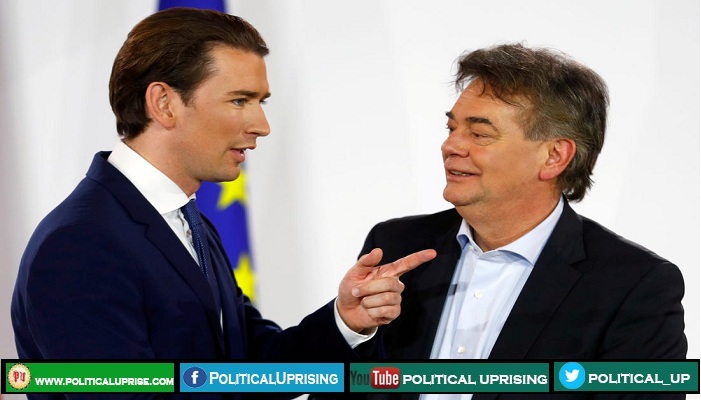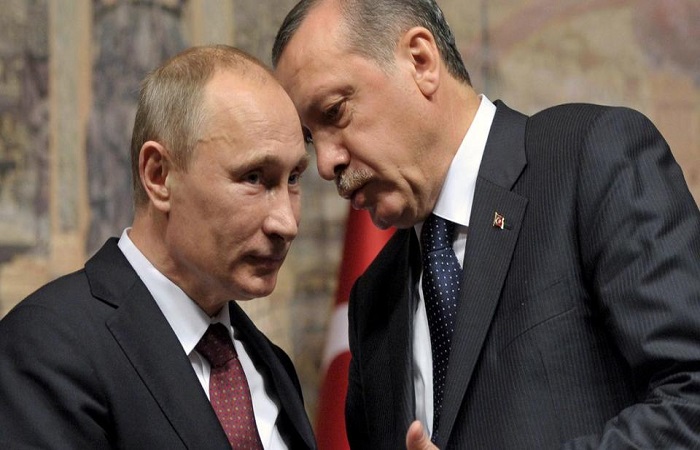Austria’s Green party to pay high price for it dangerous coalition with conservative,Greens are enabling anti-immigration policies.
In coalition with the People’s party, the Greens are enabling anti-immigration policies. Environmentalists elsewhere must not follow suit.
Since Tuesday Austria has been ruled, for the first time in its history, by a coalition government between the conservative People’s party (ÖVP) and the Greens.
It is an unlikely partnership, not least because the ÖVP is one of the most rightwing of Europe’s conservative parties.
Since taking control of the party in 2017, Sebastian Kurz, the Austrian chancellor, has transformed it into a hard-right, anti-immigrant outfit, successfully cannibalising the voter base of the populist far-right Freedom party (FPÖ), his coalition partner from 2017 until May last year.
Read More:
- Iran launches ballistic missiles targeting US presence in Iraq
- UK moves closer to leaving European Union
- Asylum seekers will be send to Guatemala under US new plan
- Pentagon rejects US president’s threat to target Iranian cultural sites
- British ex-foreign ministers warns of ‘wider consequences’ in Soleimani killing
- Iran’s FM says US denied him a visa to attend UN meeting
- German Rescue ship captain’s conviction overturned
- UK will negotiate a post-Brexit free trade deal
The previous government ended with a bang, when then-FPÖ leader and vice-chancellor Heinz-Christian Strache had to resign over a corruption scandal.
The Greens have spent the last two years vigorously attacking Kurz as a “Strache in disguise”, for lending a respectable face to inhumane policies against migrants, asylum seekers and minorities.During the recent election campaign, when asked how likely it was that his party would join a coalition government with the ÖVP, Green party leader Werner Kogler answered swiftly, “Zero per cent.”

Last week, he stood next to Kurz, presenting their common coalition programme in which a proposal to make Austria carbon-neutral by 2040 sits alongside plans to ban the Islamic veil for schoolchildren up to the age of 14 and introduce highly controversial preventive detention measures for asylum seekers.
There are two ways of looking at this seemingly awkward partnership. One is to see it as a makeshift arrangement born of necessity, the freak outcome of a political crisis triggered by the far right’s corruption scandal.
The other is to look at it as a model for political realignments internationally, a sign of a new political conjuncture to come.
Both perspectives have some truth to them and both are wrong in significant respects.
It is true that the election result made it difficult to imagine any other coalition.
Kurz was the jubilant winner, with the Freedom party sunk in a corruption quagmire and the Social Democrats in deep crisis after failing to profit from the far right’s demise,they came second with 21% of the vote, the lowest share in their history.
The Greens, having re-entered parliament on the back of a wave of climate protests with an unprecedented 14% of the vote, found themselves in an uneasy position.
They would either have to govern with Kurz or give him the pretext to continue the far-right coalition.
The Green party faced enormous pressure, not least from its own voter base and allies. For women’s, LGBTQ and migrants’ organisations, preventing the FPÖ from re-entering the government was and remains a vital concern.
Even more pressingly, environmental NGOs and the Fridays for Future student movement urged the Greens to deliver on their climate promises.
Many members and supporters felt like they had no choice but to enter negotiations with the Conservatives.
At the same time, this is more than just a marriage of convenience. It represents both a reaction to the growing popular awareness of the climate crisis, and an attempt to dissolve the climate movement’s demands in a greenwashed right wing project.
For all the ambition of the 2040 target, which goes far beyond anything any previous Austrian government has dared to do, only a few concrete measures, such as subsidies for public transportation and the phasing out of gas, oil and coal for heating have been proposed.
There will, encouragingly, be a new, powerful ministry of the environment, energy and infrastructure, presided over by Leonore Gewessler, former head of one of Austria’s largest environmental NGOs but the ÖVP-controlled treasury will probably put the brakes on more ambitious projects.
The Green party, whose members take great pride in its anti-racist identity, is willing to pay a high price for all this.
None of the economic reforms introduced by the previous, staunchly pro-capital government such as the expansion of the legal working day to 12 hours and the working week to 60 hours will be up for revision.
The new coalition programme includes tax reductions for big corporations and a commitment to neoliberal trade agreements. And Kurz will not even have to adjust his image as an anti-immigrant hardliner.
In his own carefully crafted words, the new government aims to “protect both the climate and the borders”.
Some international commentators have welcomed the unusual pairing as a new middle ground, offering stability and a way out of Europe’s political stalemate.
Others look at it anxiously as a potential route for rightwing parties to reinvent themselves as “eco-fascists”.
In fact, it signals an acceptance from parts of the conservative and liberal elites forced on them by global social movements that the climate crisis is a real and pressing issue and an attempt to act without harming the interests of big business.
Here, Kurz and his new Green vice-chancellor Kogler are in agreement,they see climate change as an opportunity for innovation and investment in the private sector, with no intention of taking on the vested interests of the fossil, steel and automotive industries.
Where they differ is in their vision for dealing with the already unavoidable global consequences of the climate crisis. The Greens say that they remain committed to international human rights.
But in the reality of a coalition government their words will have few practical consequences, as Kurz has made it very clear from the beginning that he will not change his tough anti-immigrant stance.
Kurz plans to prop up domestic support by vilifying Muslims and further fortifying both the EU and the nation-state against current and future migration movements.
Far from representing a new middle ground, Kurz belongs to the global breed of politicians building walls. That is not the model Europe needs.
Austria’s Green party to pay a high price for its dangerous alliance with the conservative People’s party (ÖVP).



